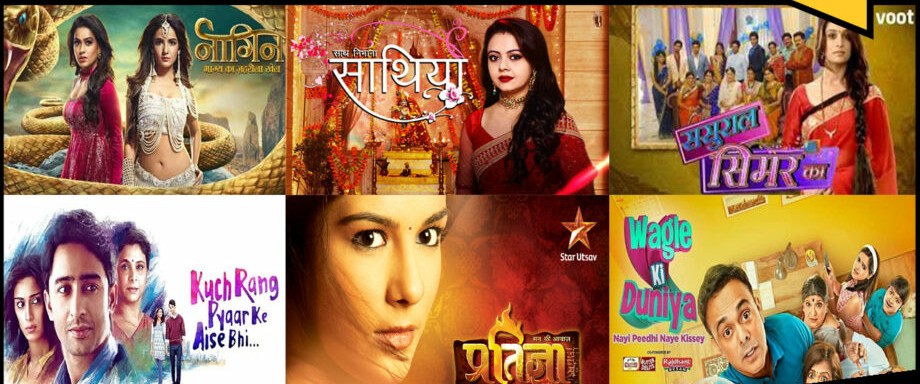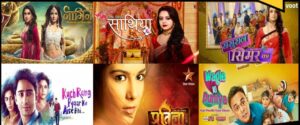in minutes to a world full of Naagins evil sasumas, ghosts, adultery, swapping of wives and husbands, the list goes on and on never seeming to end and we seem to gain so much joy, entertainment and feeling of oneness with these TV serials that we try to imitate them and live their lives, not realizing that in the bargain we lose our sense of belonginess, identity and are willing to live in a world of fantasy, deceit, falsehood.
We Know Evil Exists, But… THIS Much? Most shows are pegged around women helming family matters and the plotting and conspiring amongst themselves tends to get on one’s nerves.
Older shows like Balika Vadhu and Uttaran had antagonists who plotted to humiliate other members of their family. In Diya Aur Bati Hum too, a female antagonist was always heard scheming in her monologue. And who doesn’t remember Komolikka from Kasauti Zindagi Kay? The latest trend in shows is infusing a supernatural element, completely defying science, logic, death and sometimes even gravity. Naagins, makkhis, telepathy, super speed, ghosts, resurrections, and many other elements contribute in making Indian soap operas the enigma they are.
Another strange phenomenon in our daily soaps is the crazy time jumps. The moment the lead couple gets married and has a baby, the show often gets fast-forwarded to at least 20 years. Their child is now 20 years old in the blink of an eye but the rest of the cast hasn’t aged a day! Slow claps. In Kausati Zindagi Ki, we see couples getting married so many times that it confuses us and makes us wonder what they are trying to portray.
I can understand going to sleep in casual clothes, but going to bed wearing heavily embroidered saris, huge jhumkas, and more than five necklaces is unique to Indian soap operas. To top it all… waking up with perfect makeup!
Reality takes a walk with most Indian soap operas as we are left to wonder, “Kaun banate hai ye sab, aur log kyun dekhte hai isse?” (“Who makes these shows and who watches them?”) Once upon a time, there was no television to pack up the entire world and bring it into our living room. But as soon as it arrived, we became addicted to it. Out of all sorts of programs that we can watch on televisions, I think soap operas enjoy most popularity. And rightly so. After all, they entertain us while teaching us many valuable lessons. Yes, lessons. Here are some that I have learnt from the TV soaps.
It’s sad to see Indian television becoming synonymous with regressive saas-bahu sagas and pointless reality shows. One of the major shifts that took place on Indian television was one person who denoted an era of her own – Ekta Kapoor. Unfortunately for us, she struck gold with the concept of family shows being held together by a lead woman character. These women were created to tick all the attributes of some regressive ideal of the beti, bahu, biwi. Indian television also has become the den of reality TV shows where anger, expletives, flaring tempers sell more than any of the talent hunt. So we see a bunch of middle-aged men fighting over whether an upcoming singer will have roti in his house after the show gets over. It’s good entertainment for the audience as we see foul-mouthed judges give it to each other. And that’s that.
And that’s when I drowned in my own thought about what happened to Indian television? It was decent growing up with the Malgudi Days, Buniyaad, Nukkad, Byomkesh Bakshis of my time. And then everything went to shit.
The author is a Delhi-based freelance writer.







